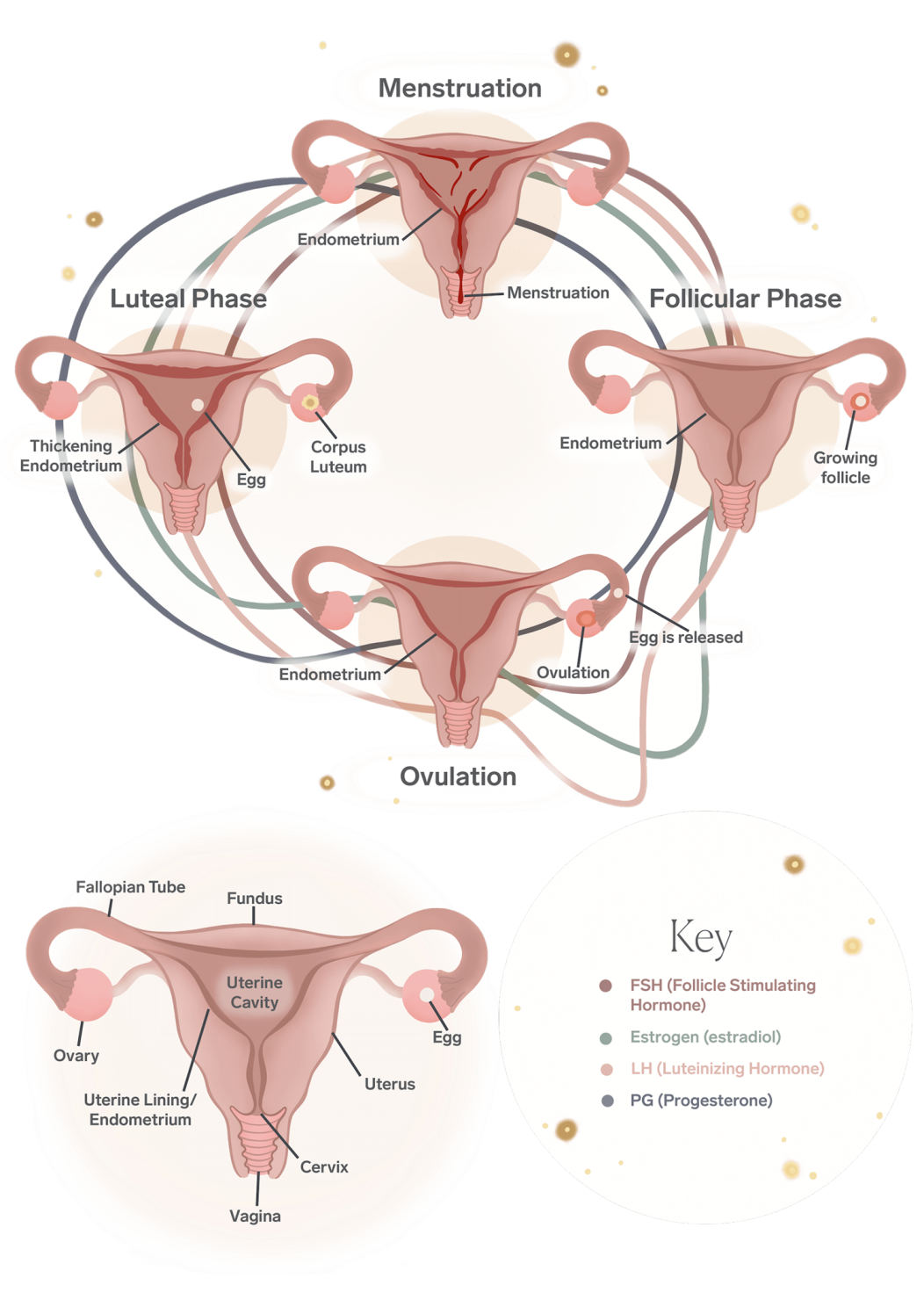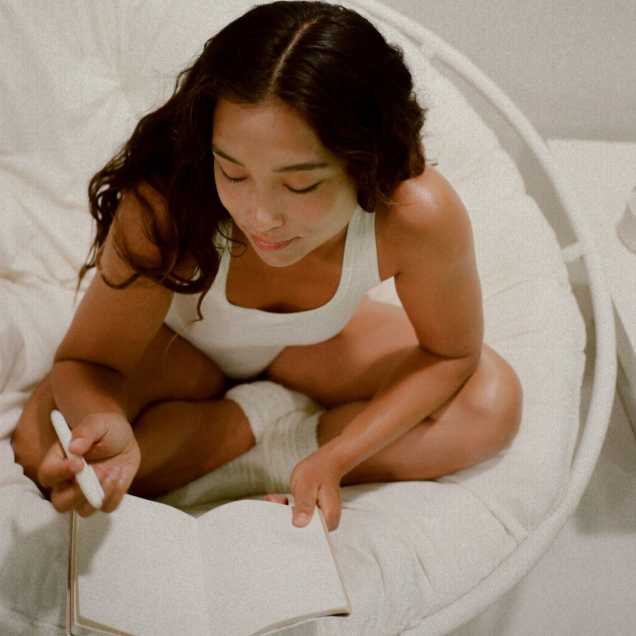What do the phases of your cycle actually *feel* like?
So you know there are a series of phases, but what really happens and what does it feel like in your body?
There’s a lot of misinformation out there about cycles, your period and what is ‘normal’. Here at Hummingway, we never assume to speak for everyone, and we know that ‘normal’ doesn’t cut it. Friendly reminder: different bodies will feel different things at different points of their cycle, requiring different types of menstrual products. You’ll find us using the term 'typically’ throughout. But here are the phases of the menstrual cycle and how you feel, "typically", in each one.
Menstruation
What’s Going On?
Aka your period: the days when you’re bleeding that signal the beginning of your cycle. This is when your uterine lining (a mixture of blood and endometrium) sheds through the cervix and vagina. A period of menstrual bleeding can last up to 8 days, but typically might last 4-5 days. A menstrual period can be accompanied by heavy menstrual bleeding while another person's can be light.
What You Might Feel And Why
Estrogen levels are at their lowest around the first days of your period, so your energy might match that. You’ll have most likely already experienced some of the more classic symptoms of being on your period, including cramps, headaches and bloating. Luckily, our transdermal period patch is designed to soothe menstruation-related cramps, bloating and other symptoms of discomfort you might experience during this phase.
If you’re experiencing period pain, like menstrual cramps, it’s because the muscular wall of your uterus is contracting. Receptors in the uterus release prostaglandins as a result, squeezing the blood vessels lining the womb. That cuts off the oxygen supply, triggering and increasing pain.
Period pain is different for everyone. After years of living in your own body, you’ll know what works best but there’s always warm baths, hot water bottles and gentle movement to help ease the pain.
Follicular Phase
What’s Going On?
The follicular phase encompasses everything that happens before ovulation (and includes your period). During this typically two-week phase of your cycle, your brain communicates with your ovary telling them to prepare an egg that will be released.
What You Might Feel And Why
Post-period, your estrogen levels begin to rise so you might feel a burst of energy and potentially a mood-boost, too. As the days go on, your estrogen levels will rise, easing any period symptoms and giving you all your pre-ovulatory, high-estrogen feels.
Ovulation
What’s Going On?
You might be wondering, what happens during the ovulation phase? In this menstrual cycle phase, your brain’s told your ovary to prepare an egg. Ovulation is when the egg is released and begins to travel down the fallopian tube. Think of ovulation as the dividing point between your follicular and your luteal phase.
What You Might Feel And Why
Yes, ovulation discomfort is another Actual Thing, and around 1 in 5 people feel it. If you experience pain around the time of ovulation, it can feel like a dull or sharp cramp on the side where the ovary is releasing the egg. Typically it might last a few hours, but for some it can be felt intermittently for a few days.
Estrogen peaks about a day before ovulation, so you might experience a quick surge in mood and energy (your hormone levels will drop for a short time after ovulation before they rise again), as well as in your sex drive. You’ll also notice that cervical fluid dries up quickly right after ovulation so you might feel like making the most of an increased sex drive (owing to a gradual rise in estrogen). Now could be the time to try something adventurous or have a glass of wine, unwind and look after yourself.
Luteal Phase
What’s Going On?
The luteal phase is the next phase (and second part) of your cycle. The luteal phase of the cycle starts just after ovulation (when the ovary releases an egg), and finishes the day before your next period. It typically lasts around two weeks.
What You Might Feel And Why
Because of the hormonal changes (progesterone peaking, then — just before your period — both progesterone and estrogen hormone levels dropping), this is when you’ll probably experience those ‘classic premenstrual symptoms’ (let’s talk about that another time) like change of mood, sore or tender breasts, bloating and headaches. A friendly reminder to be gentle with yourself.

Your hormones can be complex and unpredictable. That’s why we’re here, on The Regular, to do what’s long overdue - to demystify what’s going on with our reproductive systems, our hormones and our whole cycle.
We’re here to support your day-to-day queries serving useful content that is uncomplicated and unbiased. No topic is too complicated or too specific for us to address/focus on.


